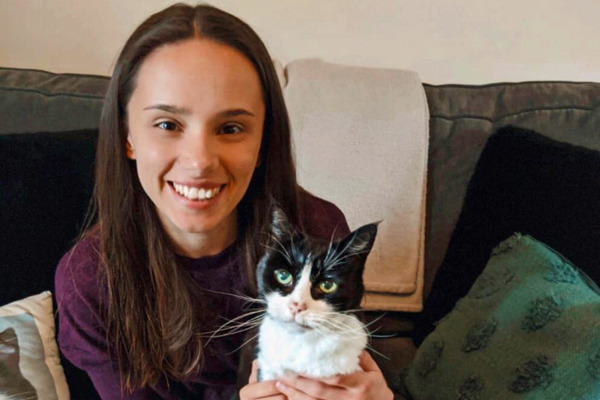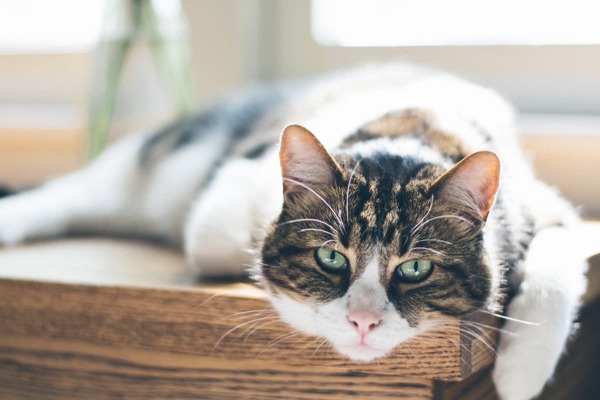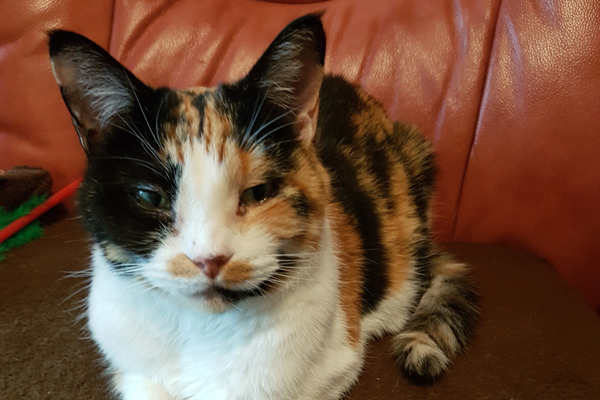Mature moggies take three times longer to find new homes than kittens, but still have a lot of love to give
Our Downham Market Adoption Centre in Norfolk is appealing for new owners for three older cats in their care.
Rather than enjoying their twilight years curled on a lap, older cats in care are more likely to be overlooked while kittens and younger cats go to their new homes sooner.
Senior and elderly cats (over 11 years) took 3.1 times longer to home than kittens, averaged over a five-year period since 2016.
In 2021, kittens made up 22% of cats homed by Cats Protection, while cats aged 11+ years equated to only 8% of all adoptions.
This is why Cats Protection has launched #MatureMoggiesDay, taking place on 16 June every year, to celebrate senior ‘kitizens’ and everything they have to offer.
With another kitten season approaching, three harder-to-home older cats are being championed by Downham Market Adoption Centre in the hope they’ll find new homes soon.
Pepper
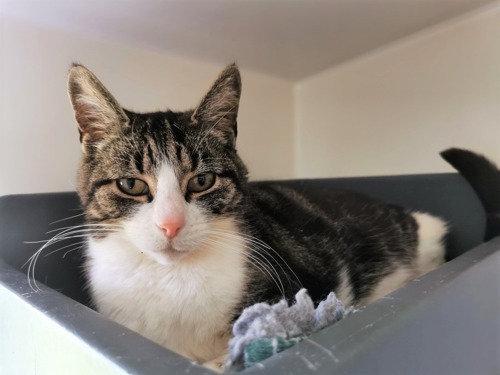
Pepper is looking for a home before her 12th birthday in May. This tabby came into care in February after her owner died and the poor girl has had a tough time coping with the loss. She is a sweet and friendly cat who enjoys the company of people and loves to be tickled under the chin. She is looking for a quieter adult-only home, hopefully with an enclosed garden. Given time to settle, Pepper will repay the love many times.
Jessy
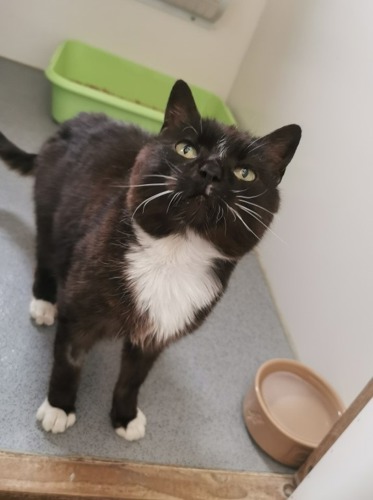
Jessy came into care when her owners moved and left her behind. Despite being a real cutey who adores attention, adopters have so far missed the obvious charms of 10-year-old Jessy. This beautiful brown-and-white girl is extremely affectionate, especially to anyone holding the treats. She would like a garden to enjoy some spring sunshine before snuggling up on a sofa at night.
Alpen
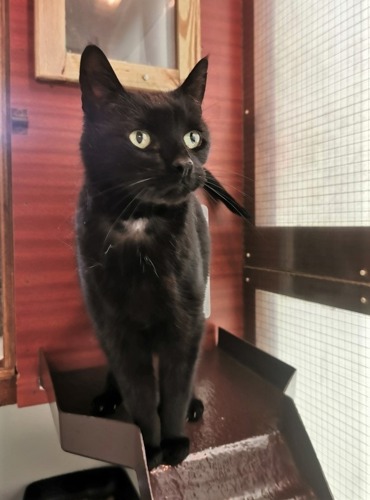
Alpen was relinquished when her owner’s new family had an allergic reaction to cats. This characterful 12-year-old enjoys fuss on her own terms. She can be a playful girl but traditional cat toys aren’t her thing. She would rather play with balls of tin foil or crumpled paper. She’s mostly an indoor cat and is looking for an older family home where she can enjoy affection and maybe a gentle plod in the garden every so often.
If you would like to offer Pepper, Jessy or Alpen a home, please contact the Downham Market Adoption Centre on downham@cats.org.uk or 01366 382 311.
Jessica Hatcher, Rehoming & Welfare Assistant at the centre, is a fan of mature moggies: “Everyone loves kittens but I find myself attracted to the mature cats. They can be so loving and you just feel that they have lived a little.
“I don’t consider these three golden girls to be old, they’re in their prime. They are affectionate and they seem so knowing when you look in their eyes. If they could speak, they’d have stories to tell, I’m sure. I hope that people come forward to give each of them a home to share the best years of their lives. They have so much more love to give.”
Many cats live long, happy lives, thanks to improvements in veterinary care, and it’s not uncommon for a cat to reach 18 years or older in good health, so adopters shouldn’t be put off choosing a more mature cat. They can also be calmer cats, which will suit many homes.
While some will benefit from a little extra support, most senior cats don’t require major changes to life or environment to be loving family cats with a lot of love to share.
Little things can make a huge difference to the comfort of a mature cat and embracing a quieter life with more rest can make their life more comfortable. Simple changes could include adapting set mealtimes to feeding them little and often, and maybe switching to a diet tailored to the nutritional needs of senior cats.
Of course, older cats can be vulnerable to age-related health conditions, such as arthritis, constipation and kidney issues, as well as an increase in appetite or excessive thirst. Eyesight and hearing can deteriorate and some have problems toileting.
But many of these issues are treatable or manageable with medication or small environment changes. Catching them early can minimise suffering and extend life, so it is important to monitor any changes in behaviour or wellbeing and schedule regular vet checks.
Find more advice on how to care for an older cat.

